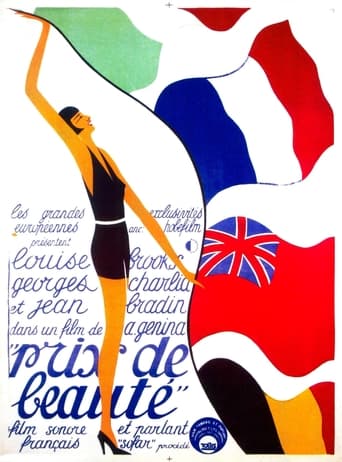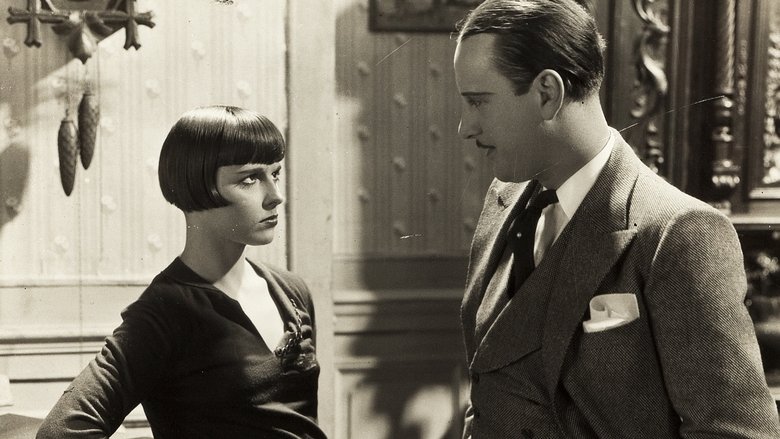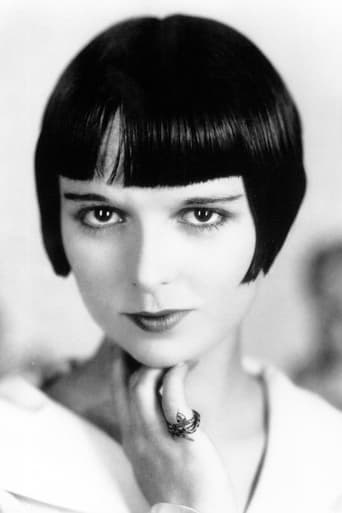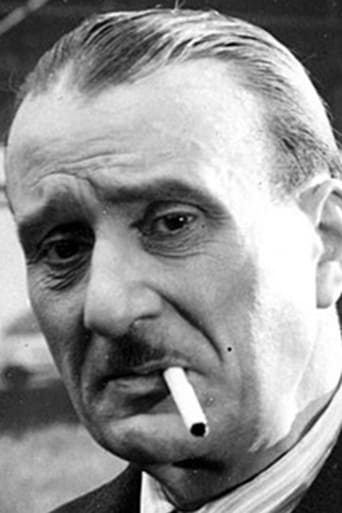

Miss Europe (1930)
Lucienne, typist and gorgeous bathing beauty, decides to enter the 'Miss Europe' pageant sponsored by the French newspaper she works for. She finds her jealous lover Andre violently disapproves of such events and tries to withdraw, but it's too late; she's even then being named Miss France. The night Andre planned to propose to her, she's being whisked off to the Miss Europe finals in Spain, where admirers swarm around her. Win or lose, what will the harvest be?
Watch Trailer
Cast


Reviews
Thanks for the memories!
Slow pace in the most part of the movie.
The film makes a home in your brain and the only cure is to see it again.
The film never slows down or bores, plunging from one harrowing sequence to the next.
We saw the silent version of this film, and it is quite simply shimmeringly beautiful. It's quite hard to see how a sound version could have been created, since it is shot with pure silent technique, long wordless sweeps of narrative without a single intertitle -- save for a few disconcerting sequences where Louise Brooks, playing a French typist, is quite visibly speaking in English... The only section that obviously cries out for sound is the final scene, where Brooks is watching the rushes for her test 'for a sound film': footage which plays constantly in the background as the action unfolds, with her mouth moving in ceaseless soundless song. I was unsurprised to learn afterwards that this passage alone in the talkie version had been hailed as an exemplar of new technique! In the sunny beauty of its opening scenes and the fairy-tale inevitability of what follows, the film resembles a dream. As a 'Louise Brooks movie' it was not at all what I was expecting, either from her Hollywood comedies or from G.W.Pabst's German melodramas: I found the idiom more fluent and enjoyable than either, and Brooks herself is a different creature, a sturdy laughing young animal rather than a shop-window vamp or manipulated doll.But what gives this film greater depth than at first appears is the unexpected second half; repelled by the rich parasites who cluster around her beauty, the pauper princess returns to a tear-stained reunion with her humbly-born true love... and the tale might very well have been ended there. Fairy-tale, however, turns to tragedy. The dilettante Grabovsky, confident in his ability to manipulate the woman he desires, is yet all too correct in his self-interested prediction -- the young lovers cannot make each other happy -- and André, ironically, was right to mistrust the social influence of beauty contests: after the intoxication of her moment's glory, Lucienne frets herself to despair over the humdrum routine of married life while her husband, in turn, is driven wild by any reminder of the whole affair. If it were a simple case of a mis-matched marriage, that would be one thing... but the true tragedy is that they do love each other.In many ways "Prix de Beauté" reminds me of Murnau's "Sunrise". But if so, the fairground and photographer scenes here would form a distorted mirror-image of the joyous reconciliation in "Sunrise"; no dream but an alienating nightmare. And the following dawn brings not a miraculous reunion but an empty bed and deserted home. Leaving a letter to say that she loves him and will always love him, Lucienne vanishes again from André's life in quest of brightness and freedom; and this time she will never come back.Gossip columns confirm all André's worst convictions, as he learns of his wife's whereabouts through reports coupling her name with Grabovsky. When the young workman penetrates at last to the lavish sanctum of the screening-room, it is with drawn gun -- to be greeted by the sight of his rival courting and caressing a laughing Lucienne, the same woman who had pledged her undying affection as she left him. He kills her, but even as he kills is transfixed by the living image on screen, Lucienne in all her transformed glory as he never saw her. The two women are juxtaposed in an endless, powerful moment, as André is seen, seized, unresisting, and pulled away: the dying girl and her singing self still projected above, caught unknowing out of time into celluloid eternity, playing on unconscious of life or death or love beneath her...The main jarring element in the film is the character of André's co-worker Antonin, who appears to serve no role throughout other than to be the licensed butt of his contemporaries' malice. He is the ugly one who can never get the girl, the ungainly wimp who is tripped and tormented in the washrooms and at work, and must take it all with an uncertain ingratiating smile in his fruitless hope for social acceptance: a typical product of the bullying of the more gifted and popular, in other words, but one the audience is apparently being invited to laugh at along with his tormentors. Unless the intention is to expose a darker side to the protagonists (for which I perceive no sign), the character seems to exist merely as comic relief, but comic relief with a distinctly nasty edge. When we know him only as an inept Peeping Tom at the waterside, it's easy to laugh, although the others' revenge seems a little over the top; when we discover that he is no chance-met stranger but André's colleague and regular sidekick, the continuing attacks rapidly cease to be very funny.But it is the images that remain. Beauty, nightmare, and dream.
BEAUTY PRIZE (Augusto Genina - France 1930).Louise Brooks' last starring role in a feature, and her only film made in France. It's the story of Lucienne, a high-spirited Parisian typist who leads a mundane life with her fiancé, André, and a number of friends. While André indeed loves Lucienne, he has conventional expectations for their future together. When the Miss Europa beauty contest comes to town, he warns her to "not even dream" of entering it. Lucienne ignores his advice, and from there on, she struggles for independence and happiness, but André is overcome with jealous rage...I just watched "Prix de Beauté" in the sound version on the Kino Video DVD-release. The film was shot as a silent and Louise Brooks voice was badly dubbed by a French actress. The post-doctoring of this silent film into a talkie was badly done in the first place, and, on top of it, the transfer to the DVD is pretty shabby as well. Sometimes too light, then too dark, too fast, too slow. It's a mess. A mediocre film that might have worked as a silent but is no comparison to earlier films Louise Brooks made with G. W Pabst, "Pandora's Box" and "Diary of a lost Girl." I watched this for the obvious reason of Louise Brook's last starring role, but it's only worth it for Brooks-aficionados or completists. Watch the silent version or turn of the sound, and make the best of Louise Brooks' intoxicating presence. The five stars are hers.Camera Obscura --- 5/10
It is often only after years pass that we can look back and see those stars who are truly stars. As that French film critic, whose name escapes me, said: "There is no Garbo. There is no Dietrich. There is only Louise Brooks"; and there is, thank heavens! Louise Brooks! This is the third of her European masterpieces. But it is also an exceptional film for being one, if not the, first French talkie, for following a script written by famed René Clair, for reportedly being finished (the direction, that is) by Georg Pabst, and for incorporating the voice of Edith Piaf before she was well known! So much talent working on and in a film, how couldn't it turn out to be a masterpiece?! And that's what this film is. It's a shame Louise Brooks was blackballed by Hollywood when she came back to the States--so much talent cast so arrogantly by the wayside! In the film, in addition to getting to watch Louise Brooks in action, it's great to see pictures of Paris ca. 1930 and to hear Piaf's young voice. I never get tired of this film!
Louise Brooks gives a wonderful performance in this well-made French melodrama. She plays a typist named Lucienne who, despite being in love with a man named Andre, dreams of rising above her position in life. She sees opportunity in a beauty contest for Miss Europe, but Andre is furious when he discovers that she's entered, then demands that she withdraw. She tries to take back her entry only to discover that she's already been chosen as Miss France and will now go on to the main pageant.This is a story of love, loss and decision played out to its passionate end. The movie is very energetically filmed by director Augusto Genina and cinema tographers Rudolf Mate and Louis Nee. The filming style is more like modern movies than the Hollywood flicks of the '30s, and shows the different style employed by Europeans. There are many fast cuts and traveling shots, mostly done with great skill and verve. The high energy of the movie's first third dwindles a bit in the middle but picks up again in the last 15 minutes.The performances were very good by all the principals, but that of Louise Brooks is especially memorable. Louise leans heavily on her silent screen skills even though this is a talkie, but because her silent style had a surprisingly contemporary, understated feel, she makes the transition to talkies very well. The long early scene at the fair was especially poignant as Louise used her remarkably expressive eyes to convey her growing sense of misery and alienation, of being trapped in a life she no longer wants. I doubt it's ever been done better.The film builds to a superb finale, artfully shot, powerful and stylish. This is really some of the best stuff of the early days of film. And the tragic storyline only underscores the greater tragedy that this is the final starring role for Louise Brooks. She wasn't just a great beauty who looked fantastic in a swimsuit, she really was a major acting talent who basically threw it all away. We are all the poorer for that.This movie is less well known than her German films with G.W. Pabst, but I think it's a better one. I think this crew is just better at storytelling than Pabst, and while Prix de Beaute may lack the deep moral complexity of the Pabst films, it's much easier to follow and is overall a more streamlined, focused piece of work. And it doesn't hurt that Louise's singing parts are done by Edith Piaf, either.Bottom line, this is a classic Louise Brooks film well worth looking for.




